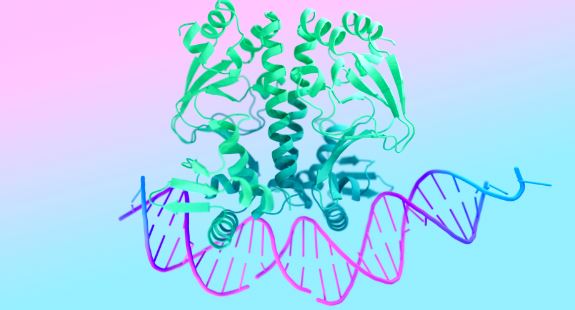Artificial intelligence (AI) continues to revolutionize various fields, from video generation to disease research. Google DeepMind, in collaboration with Isomorphic Labs, recently unveiled AlphaFold3, an upgraded version of its AI technology. This innovation holds significant promise for understanding the intricate workings of the human body at a microscopic level.
The story of AlphaFold’s evolution traces back to 2020 when its early version solved a decades-old conundrum known as “the protein folding problem.” Proteins, essential molecules in all living organisms, undergo a complex folding process that determines their functionality. Prior to AlphaFold’s breakthrough, scientists faced immense challenges in accurately predicting the three-dimensional structure of proteins. However, AlphaFold changed the game by swiftly and accurately predicting these structures, revolutionizing the field of biology.
The impact of AlphaFold’s capabilities quickly became evident across various scientific domains, particularly in drug discovery. By accelerating the process of understanding protein structures, researchers could expedite the development of new drugs and vaccines. For instance, during the COVID-19 pandemic, AlphaFold played a crucial role in elucidating the virus’s structure, aiding in vaccine development and treatment strategies. Moreover, researchers utilized AlphaFold to tackle other diseases like malaria and Parkinson’s, envisioning a future where AI significantly streamlines medical research and innovation.
The unveiling of AlphaFold3 marks a significant milestone, expanding the technology’s scope beyond protein folding. This new iteration can predict the behavior of additional biological mechanisms, including DNA and RNA. Understanding these dynamic interactions within the body is crucial for unraveling complex biological processes. AlphaFold3’s enhanced capabilities offer researchers a powerful tool to delve deeper into the intricacies of molecular biology, paving the way for groundbreaking discoveries.
Demis Hassabis, CEO of Google DeepMind and founder of Isomorphic Labs, highlights the importance of comprehending the dynamic nature of biological systems. By predicting the behavior of various molecules and structures, AlphaFold3 represents a crucial step towards unraveling the complexities of biology.
The accessibility of AlphaFold3 further democratizes scientific research. Scientists can utilize the technology through a dedicated website, empowering them to explore new avenues of inquiry and accelerate their research efforts. This democratization of AI-driven tools fosters collaboration and innovation across the scientific community, unlocking new possibilities in drug discovery and beyond.
In a paper published in the prestigious scientific journal Nature, researchers demonstrate AlphaFold3’s exceptional accuracy, surpassing previous benchmarks in the field. The technology’s ability to save significant time and resources by accurately predicting molecular structures underscores its transformative potential in biomedical research.
Deniz Kavi, CEO of Tamarind Bio, underscores the immense promise of AlphaFold3 in revolutionizing drug discovery. By streamlining experimental work and enabling research that was previously deemed impossible, AlphaFold3 opens new frontiers in biomedical research and holds the potential to address some of humanity’s most pressing health challenges.
The unveiling of AlphaFold3 represents a major leap forward in AI-driven biomedical research. As scientists continue to harness the power of AI to unravel the mysteries of the human body, the possibilities for innovation and discovery are boundless. With AlphaFold3 leading the way, the future of biomedical research looks brighter than ever.

